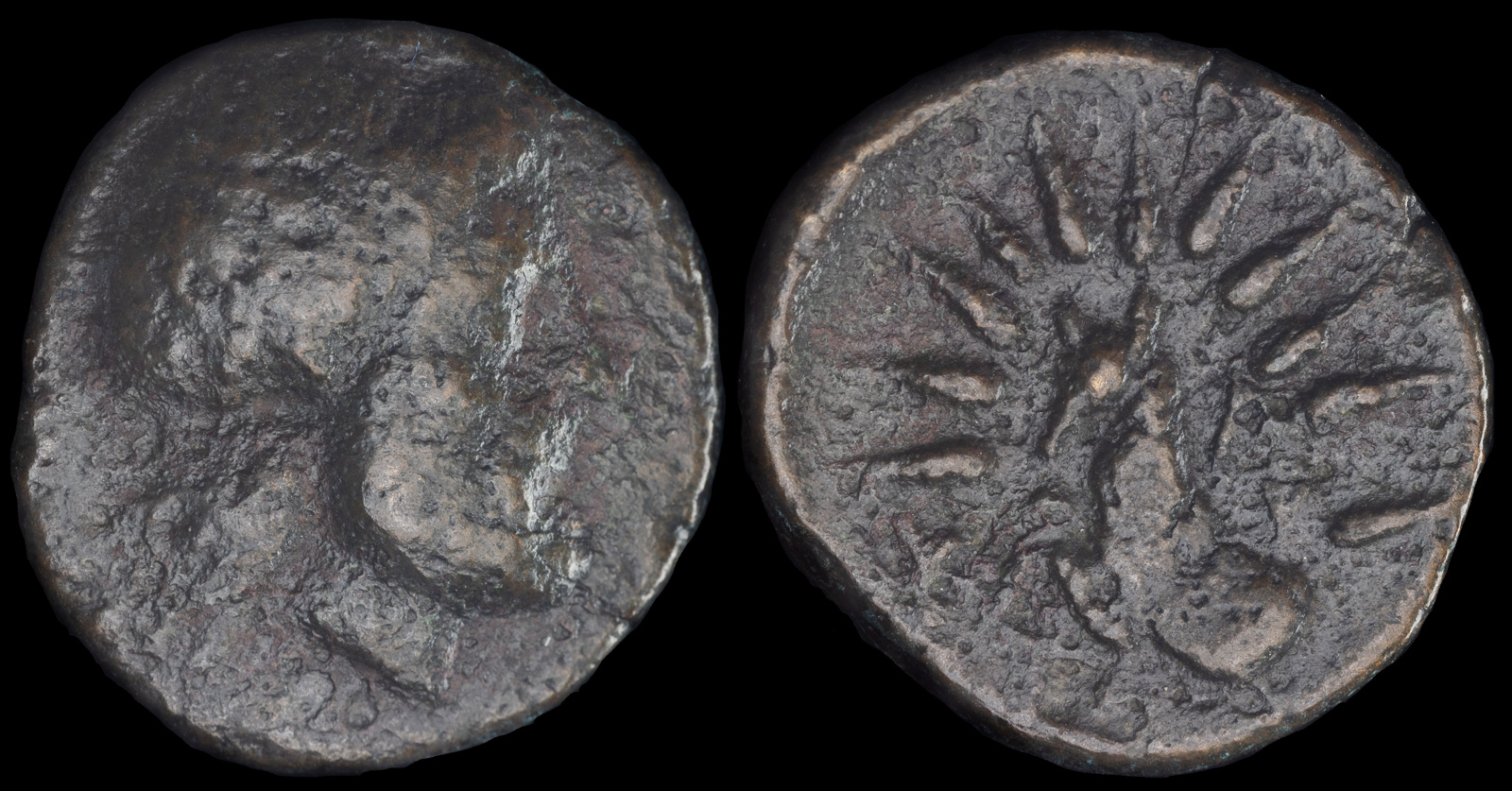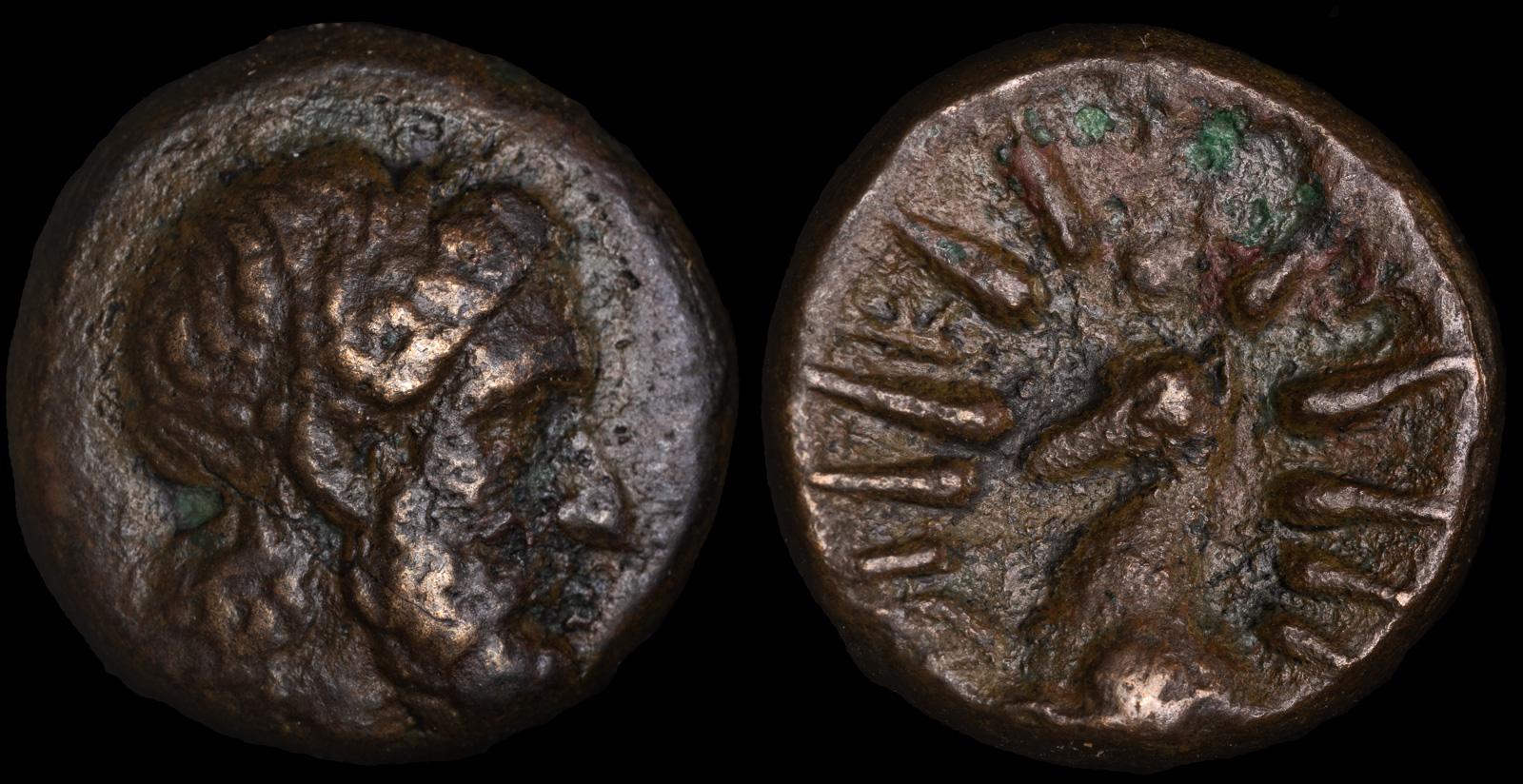Aristaios
View All Tags
One of Aristaios’ primary duties was to teach humans important skills related to agriculture and livestock. He is credited with instructing people in the art of beekeeping, ensuring that the honey-producing bees thrived and contributed to the economy and sustenance of ancient communities. As a god of honey, Aristaios was also invoked by beekeepers for good harvests and protection from disease or predators that could harm the bees. In addition to his connection with bees, Aristaios was linked to the cultivation of olive trees and the practice of olive oil production, both of which were central to the ancient Greek diet and economy.
Aristaios is also associated with the care and protection of cattle and flocks, which were essential to Greek society, particularly in terms of food, leather, and wool production. In some myths, he is portrayed as a protector of herders and shepherds, guiding them in the proper care and handling of livestock. His role extended to overseeing the health and fertility of cattle, which were often seen as a symbol of wealth and prosperity in agrarian societies.
In myth, Aristaios was involved in several significant stories, one of the most famous being his role in the tale of Orpheus and the death of Eurydice. According to the myth, when Eurydice died after being bitten by a snake, Aristaios tried to pursue her and was punished by the gods for his actions, which led to the devastation of his beekeeping and agricultural endeavors. In response, he sought the help of the gods to restore his fortunes, and in the process, he was granted the knowledge of how to revive his crops and bees, which further solidified his association with regeneration and the cycles of nature.
The worship of Aristaios was marked by offerings of milk, honey, and fruits, and his festivals often included agricultural rites. Though not as prominent as other Greek gods like Zeus or Apollo, Aristaios held a vital role in rural life and agricultural rituals, serving as a link between the divine and the everyday workings of farming communities. He embodied the interdependence between humans and the natural world, ensuring that people could thrive by understanding and honoring the forces of nature. His figure represents the intersection of divine influence and human ingenuity in sustaining life through agriculture and animal husbandry.

Cyclades, Keos. Karthaia
Late 3rd-early 2nd century BCE
Æ 17mm, 3.68g, 8h
Laureate head of Aristaios right /
Forepart of Seirios left surrounded by rays
Papageorgiadou-Banis Series IX, 155–7; HGC 6, 562
Rescued from NGC encapsulation 4629560-004
Ex CNG 2002

Cyclades, Kea
Keia Koinon Circa 4th-3rd Century BCE
16mm 4.81g
Obverse: Laureate head of Aristaios right
Reverse: Forepart of dog Sirius left, within rays of star
SNG Copenhagen 623-4, Papageorgiadou-Banis Series II, Issue 6